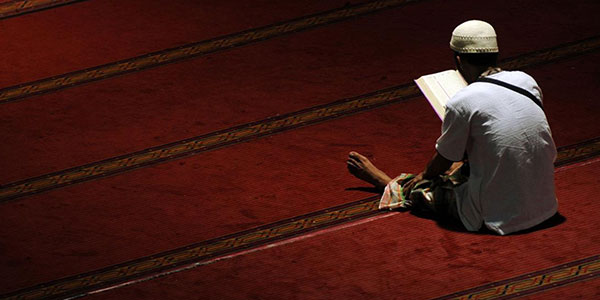Acceptance and Rejection

Shedding of the world is not equal to the renunciation of the world. After all, one has to live in this world, and find salvation through this world. Enough if the heart does not sink in it, or, never gives up prioritizing deeds, acts, and concerns of the Next World, over those of this ephemeral one, writes SYED IQBAL ZAHEER.
The Salaf were aware that it was not Salah alone, or any other single ritual, or even all the Islamic rituals put together, but one’s entire deeds, of the whole life, brought up by a sincere heart, which were the key likely to open the door to Paradise. So, to them, every deed, of everyday life was of equal importance deserving utmost attention and sincerity.
Theirs had to be a life of awareness: awareness that they were Muslims, slaves of God, every minute of the day and night. Having accomplished that, there came the question of acceptability. Were their deeds worthy of rewards? Were they acceptable to the High Al-Mighty? They were not too sure. One of the Salaf stated: “I wish I knew about one deed of mine that it was accepted, for my heart to rest in peace.”
After all, the Qur’an had warned: “Say, ‘Shall we tell you about those who lost most in respect to their efforts? Those whose efforts were misguided in the life of the world, while they thought they were doing well in performance.’” (Al-Kahf: 103, 104)
The scholars of Islam have looked into this issue and suggested a few ways to guess whether one’s devotions have been accepted. The first is the feeling after a good deed has been performed: the state of one’s heart. Did the heart enjoy a blissful, elated feeling or not?
Imam ibn Taymiyyah wrote that once he was sitting alone, in a state of Dhikr, and brooding over Allah’s Powers for quite a while when he felt blissful. He felt such a sublime, spiritual pleasure that he assured himself that the bliss was enough of a reward by itself.
An easy way to check, the scholars would suggest, is to spend off a good amount of money on a deserving poor. Almost immediately you will experience, if the expending was purely for Allah (swt), bliss in your heart. That would be the first installment of rewards expected in the Hereafter.
So your heart is your barometer.
Another method suggested by the scholars to check whether one’s good deed was accepted is to find whether a good or better deed followed it or not. If your good deeds are increasing in quantity and quality, spell after spell, you may assume that the earlier ones have been accorded acceptance. For example, if you were spending amount X on the poor last year, but amount X+Y this year, then this could be a sign of acceptance of last year’s amount X.
Or, with reference to the Prayers, one may check whether his Prayers are longer, whether they are deeper, and whether he wishes to return to them as soon as possible after the last Prayer. If there is a confirmed increase in quality and quality, then, perhaps last year’s Prayers have not been rejected.
Hakeem b. Hizaam inquired the Prophet: “What have you have to say about my devotional acts that I used to offer before Islam? Do I get back anything for them?” He replied, “You became a Muslim because of the good actions that you performed before Islam.”
Thus, good deeds lead to better deeds.
The converse is also true. A Companion says, “When my horse becomes rebellious with me, I know that I must have committed a sin against my Lord.”
Dreams are another means of discovering one’s spiritual state and advancement in it. Those who are close to Allah (swt) occasionally receive indication in their dreams that their good deeds have been accepted (or even, have been rejected). “True dreams of a believer are,” a hadith says, “one-forty-sixth of Prophethood.”
So, true dreams could be a means – for some alone – especially those advanced in spiritualism, to gauge and guess where they stand. Many are guided through dreams.
But, to be sure, we are talking of dreams of the righteous folks, not the sinning blokes.
Not to miss: consistency is important. The Prophet has declared, “The most approved of deeds by Allah (swt), are the most consistently performed ones.
Emotional out pours are winds of storm. They grow no fruits on the trees, but fell them.
Finally, good deeds in continuum cleanse the soul which brightens up thereby. That is reflected on the face which one can himself observe in the mirror, or is noted by others that it has acquired a glow. This glow is apparently visible to the unbelievers too. But this requires a complete submission to the Lord, subjecting entire Islam to sincere and loving practice, and shedding off the love of this world.
To warn, such shedding of the world is not equal to the renunciation of the world. After all, one has to live in this world, and find salvation through this world. Enough if the heart does not sink in it, or, never gives up prioritizing deeds, acts, and concerns of the Next World, over those of this ephemeral one.
Allah (swt) has said, “But You prefer the life of this world, whereas, the Hereafter is better and longer lasting.” (87: 16, 17)
You seek to know whether your deeds are accepted! Yet, have you considered? You give your best gifts to your maid, and the left-overs to your mother! Would you be surprised that she refuses to accept?

